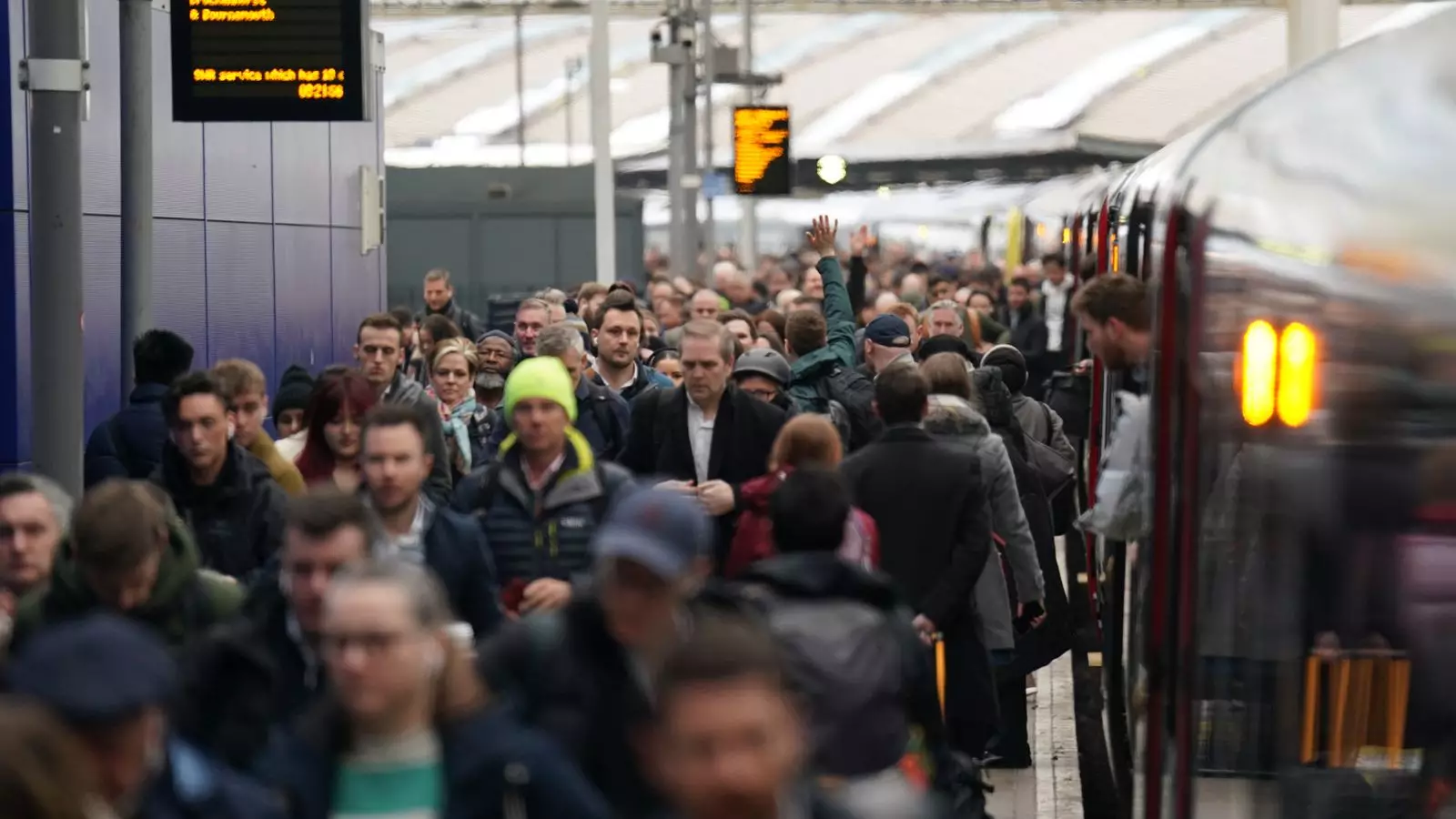The recent fare hikes in England and Wales have left many train travellers feeling the financial strain as they struggle to afford their daily commutes. With prices increasing by nearly 5%, passengers are being pushed to their limits, especially in the wake of high levels of cancellations and disruptions. The timing of these rises could not be worse, as the network is already in a “shocking state” according to critics, with ongoing rail strikes adding to the chaos.
Prior to the latest fare increases, it was revealed that the UK already had the most expensive train tickets in Europe. This staggering fact only exacerbates the financial burden on passengers, many of whom rely on trains for their daily travel needs. The exorbitant prices are causing frustration and anger among commuters, who are left wondering why they are being forced to pay such high prices for subpar services.
The issue of rising train fares is likely to become a major point of contention in the next general election, with Labour promising to bring the railways back into public ownership as contracts expire. This move is seen as a way to address the soaring costs of train travel and to ensure that passengers are not unfairly burdened by continuous fare increases. The government’s current approach of price hikes is only serving to push passengers away from rail travel and onto the roads.
Campaigners and transport experts have expressed their concerns about the negative consequences of the fare rises on passengers, the economy, and the environment. By making train travel more expensive, the government is discouraging people from choosing a more sustainable mode of transport. This could lead to an increase in cars on the roads and a rise in air travel, both of which have detrimental effects on the environment. Additionally, the financial strain on passengers could result in decreased spending power and a slowdown in the economy.
The current situation with rising train fares calls for urgent action from the government and train operators. Passengers deserve affordable and reliable train services, and it is essential that their needs are taken into consideration when pricing decisions are made. With the cost of living crisis, climate emergency, and overall dissatisfaction with the state of the network, it is clear that changes need to be made to ensure that train travel remains a viable and sustainable option for everyone.
The growing crisis of rising train fares in England and Wales is a pressing issue that requires immediate attention. Passengers are facing financial hardship as prices continue to climb, while the quality of services remains questionable. It is crucial that the government, train companies, and policymakers work together to find solutions that prioritize the needs of passengers and ensure that train travel remains an accessible and affordable option for all. Failure to address this issue could result in long-term consequences for both passengers and the wider economy.


Leave a Reply